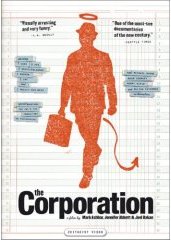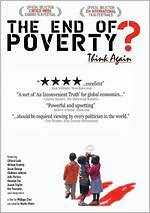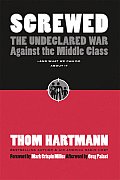
Corporations
©2000-2017 Roedy Green of Canadian Mind Products
Corporations
There is no doubt that the invention of the corporation has created
immense prosperity and created great fortunes. Just how do they work?
- They allow people to invest in a project at arm’s length. No matter how badly
the project is managed, the shareholder is not on the hook for any greater amount than
his investment. This allows someone to invest in a company without needing to carefully
supervise it.
- The selling of shares makes it possible to for people to quickly divest themselves
of a project if they need the money or think they can invest it better somewhere
else.
The Dark Side
There is a dark side to corporations as well.
- The managers of the company are required by law to do whatever it takes to make the
most money. They are not permitted to consider the interests of the employees or the
customers, or the community, other than as it reflects on profits. This, of course, makes
them do many foolish, immoral and illegal things that the shareholders might not
approve of if they were aware of the decisions. Corporations are required by law to
destroy the environment, pollute, pay people below subsistence wages etc simply because
those actions mindlessly make more money in the short term.
- When people do illegal acts on behalf of a corporation, sometimes the corporation
is punished with a small fine. The employees themselves are not criminally charged,
even when their actions lead to multiple deaths. Corporations protect all manner of
what would normally be considered murder from prosecution, e.g. give someone a drug or
chemical they know is poisonous.
- The corporation looks on fines much the way it does taxes and decides on an
economic basis when it pays to break the law and when to obey it. Since the fines are
usually nominal, usually it pays the corporation to break the law and pay the
fine.
- Many Americans have an almost religious awe about corporations and believe that if
left to their own devices, all would be well. This, of course, is nonsense, since
corporations are single minded. They work to only one goal, maximising profit. They
can’t by law, take other factors into consideration. Regulation
does not hurt a corporation so long as there is a level playing field. The cost of
conforming with say an anti-pollution law is passed on to the consumers. Without
regulation, the cost of the even more expensive cleanup is passed on to the taxpayers
generally, which is unfair since they did not enjoy the product. It makes sense to make
the polluter clean up so that the clean up is included in the product’s true
cost.
- Since corporations work solely to maximise profit, they spend considerable sums on
advertising to encourage people to be wasteful and to consume recklessly. In a planet
with exploding population and dwindling resources, any form of waste is suicidal.
- Corporations concentrate political power. They control what governments do, even
when the people are firmly united against a policy. For example, Bolivia privatised its
water supply and made it illegal to collect your own rainwater. The private company
gouged Bolivians for 1/4 of their monthly income. In the United States, defence
corporations push the USA into endless expensive wars and preposterously high military
spending, with none of the usual accounting controls.
- Corporations concentrate wealth. They then use this wealth to buy up the
competition. Agriculture in the USA is controlled by only 5 companies. Farmers have a
choice of only two places to sell their products typically. The company decides the
price and gradually puts the farmer out of business and takes over his land. Look at
the label in your supermarket. Chances are it will say somewhere Kraft/Philip
Morris/Altria (they change their names to hide what they are doing) or
Nestlé.
Summary
We created the corporations for our benefit. Now they have grown into
mega-monsters and are controlling entire countries for their benefit,
doing immense damage in the process since they don’t take into account any other
value than immediate profit.
We need to regulate them globally. It won’t hurt them despite their squealing.
We need to make fines high enough that it does not pay to break the law. We need to make
people who kill or harm others while employed at a corporation to be also personally
liable.
It may also be time to make shareholders pay fines when their companies misbehave,
e.g. by confiscation of a percentage of stock, to encourage shareholders to pay better
attention to what their companies are doing and ride herd on them.
We have to put a stop to corporations buying politicians. We need to cap donations to
hard and soft money from any board member and not allow corporate donations or freebies
at all. To take your county back you must clamp down on both legal and illegal bribery.
This also means forcing fairness on TV stations so that can’t bribe with biased
coverage. It is bad enough with corporations able to use their advertising dollars to
influence editorial content.
DVD (Digital Video Disc) s
DVD referral for The Corporation
 |
recommend DVD⇒The Corporation |
| DVD |
|---|
| by | Jennifer Abbott, Mark Achbar |
|---|
| birth | 1965 age:52 |
|---|
| asin | B0007DBJM8 |
|---|
| upc | 795975106535 |
|---|
| This is the most popular documentary in Canada. It explains the good the bad and the ugly about corporations. You can visit the movie website. |
|
| Greyed out stores probably do not have the item in stock |
DVD referral for The End Of Poverty? Think Again
 |
recommend DVD⇒The End Of Poverty? Think Again |
| DVD |
|---|
| by | Philippe Diaz [director] |
|---|
| asin | B0036WK57C |
|---|
| upc | 881394108820 |
|---|
| Powerful video about the evils of neocolonialism, the World Bank, The IMF and the brutal way the have countries are treating the have-not. It explains how our capitalist system mercilessly exploits the third world and pushes them deeper into poverty every year. We just have to get our corporations and governments off their backs. Why you will never buy another United Fruit Company (Chiquita) or ITT product again. |
|
| Greyed out stores probably do not have the item in stock |
Books
Book referral for Screwed: The Undeclared War Against the Middle Class — And What We Can Do about It
 |
recommend book⇒Screwed: The Undeclared War Against the Middle Class — And What We Can Do about It |
| by |
Thom Hartmann |
978-1-57675-463-4 |
paperback |
|---|
| birth |
1951-05-07 age:66 |
978-1-57675-414-6 |
hardcover |
|---|
| publisher |
Berrett-Koehler Publishers |
978-1-60509-869-2 |
eBook |
|---|
| published |
2007-04-28 |
978-1-4332-1514-8 |
audio |
|---|
| |
B001AFF25M |
kindle |
|---|
This book is simple and somewhat repetitive. It argues five main points. - A vigorous middle class is essential for democracy.
- Throughout history, the elites have done battle to eliminate the middle class and scoop all the wealth for themselves.
- Starting with Reagan, the lower and middle classes in the USA have become poorer while the elite’s wealth has exploded into the stratosphere.
- The elites tell all manner of lies to trick the middle class into giving up their power and wealth to the elites.
- You have a choice:
- government can run things, via representatives responsible to the people.
- corporate CEOs can run things, responsible only to their shareholders.
When you consider the alternative, big government managing society does not look so bad.
Hartmann argues that historically the wealthy elite have always worked to eliminate the middle class and hence stomp out democracy. They can then run things for their own ultimate financial benefit. We are going through a period now where the middle class is collapsing as a result of the corporatocracy and wealth of the tiny elite at the top is exploding. Since they control the media, they spread all manner of myths that make people vote against their own self interest in favour of those of the elites. The book also discusses how the war business hijacks government to provide it with endless streams of money for perpetual unnecessary war. |
|
| Greyed out stores probably do not have the item in stock. Try looking for it with a bookfinder. |
For man Must Work  : National Film
Board of Canada documentary
: National Film
Board of Canada documentary





![]() : National Film
Board of Canada documentary
: National Film
Board of Canada documentary